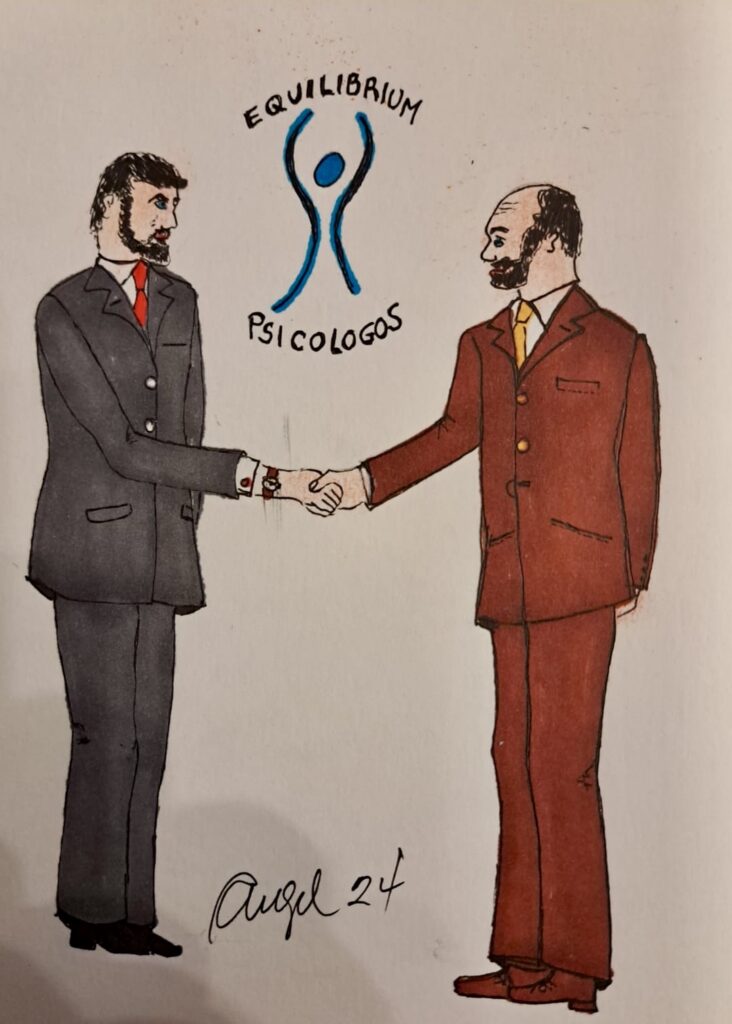In today’s dynamic business world, the ability to lead and communicate effectively has become essential to get success in management positions. This article immerses you into the fascinating universe of psychology and executive coaching, exploring key strategies to increase sales and develop verbal and non-verbal communication skills.
Self Esteem and Self Confidence. Executive Coaching
Strong self-esteem is a crucial foundation for success in executive roles. We will explore how to cultivate a positive self-image and techniques to build self-confidence that is palpable in every interaction. These tools not only strengthen personal confidence, but, also project a strong and confident presence in the professional environment through executive coaching, to increase communication skills.
Verbal and Non-Verbal Communication: The Art of Persuading
At the heart of any effective negotiation, is the ability to communicate in an impactful and inspiring way. From tone of voice to body posture, we’ll discuss how to adjust verbal and nonverbal communication to convey powerful and compelling messages.
Executive Coaching for Successful Managers
With the Emotional Coaching program to increase success and sales with peace of mind by Ana Brech (Coach) and Carolina Díez Jorge (Psychologist-Equilibrium Psicólogos), we provide you with psychological tools to increase your sales, as well as, enhance personal growth and professional by increasing your communication skills.
Development of Self-Esteem and Self-Confidence. Keys and Effective Psychological Strategies for Business Leaders:
Techniques to develop Self-esteem and self-confidence
- Positive Visualization: The positive visualization technique is a powerful tool for building a positive self-image. Managers can spend a few minutes daily imagining successful scenarios and visualize themselves confidently handling challenging situations. This reinforces self-esteem and encourages a winning mentality.
- Acceptance, Gratitude and Celebration of Achievements: Promoting self-esteem involves recognizing and celebrating achievements, no matter how small. Executives must keep track of their successes and learn to recognize their worth. This process of self-affirmation contributes to the development of self-esteem.
- Healing and empowerment of the inner child: Certain blocking emotional patterns and irrational beliefs come from our past. It is important to unlock these unconscious patterns to be successful in business and life. In the emotional program that we have prepared for you, we teach you how to do it. https://equilibriumpsicologos.com/cursos-para-aprender-a-relajarse/hipnosis-para-adelgazar-madrid/
- Development of Competencies and Skills: The constant acquisition of new competencies and skills strengthens self-confidence. Executive leaders can seek opportunities for ongoing training, expanding their knowledge and skills, resulting in increased confidence in their performance.
Communication Techniques to Persuade:

Keys to Executive Success
1. Assertive Body Language: An upright posture and confident gestures project confidence and authority. A firm handshake, maintaining eye contact, and an open posture are essential elements of body language that influence the perception of leadership.
2. Tone of Voice and Clarity in Communication: A clear and confident tone of voice is essential to transmit messages persuasively. Avoiding monotonous tone, varying intonation and speaking clearly help to capture attention and accentuate the importance of the words expressed.
3. Listen more and talk less: People like to feel heard. In that moment of listening, you can observe what the person in front of you likes, take note and use that data later to be successful and to close the negotiation satisfactorily. On the other hand, that profile of a person who does not stop talking about himself is not attractive and people run away from them.
4. Active Listening: Active listening is a key skill in persuasive communication. Executive leaders must demonstrate genuine interest in the ideas and concerns of others, reflecting empathy and understanding. This not only strengthens relationships, but also facilitates influence.
By incorporating these strategies into the daily life of the managers, communication and leadership skills are strengthened, improving self-esteem and self-confidence, and contributing to professional success in the company.
«Remember, investing in yourself is the key to success. We have come to this life to expand more every day, and every time you wake up, it is a new opportunity to be a magnet of abundance and balance in your life.» Carolina Diez Jorge







